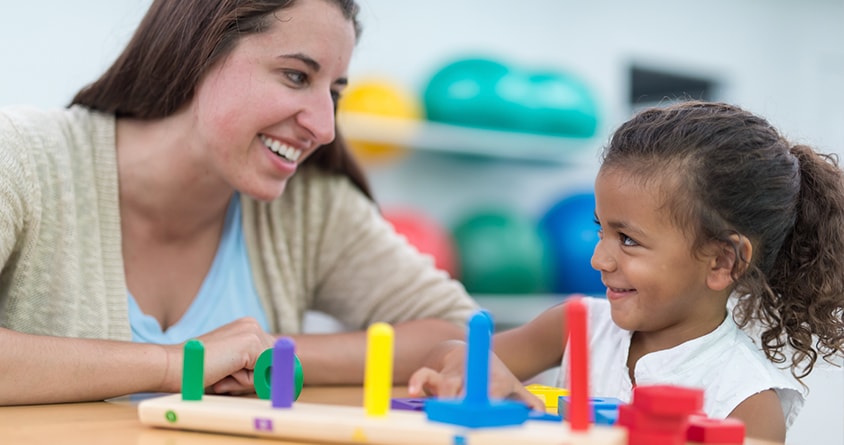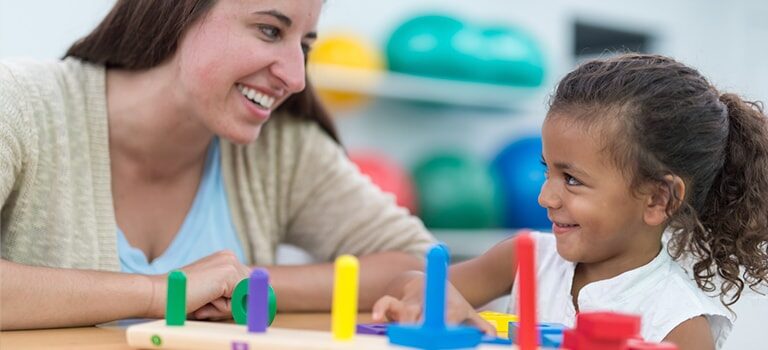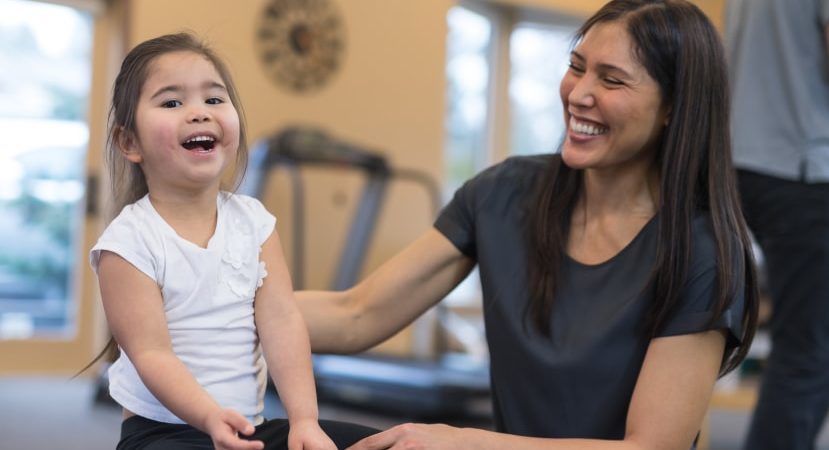

Services
Occupational Therapy
Occupational therapists help children develop the necessary skills to increase independence when participating in age-appropriate activities at home and school.
Occupational Therapy helps people of all ages overcome the struggles of everyday life.
Skills such as fine motor skills, visual-motor skills, self-help skills, including dressing, feeding, grooming, motor planning, play skills, social skills, sensory processing, strength, and coordination are fundamental components required for children to successfully participate in their roles and occupations within their environments. Success in completing independent tasks can also help to increase a child’s confidence. When these skills are negatively impacted, a child may have difficulty with functional participation in age-appropriate activities.
Children learn from their environment by engaging in play activities. Occupational therapists use their unique skills to develop purposeful and motivating activities to engage children in tasks to increase following directions, attention skills, problem-solving, handwriting, core strength, posture, upper body strength, and endurance. Occupational therapy helps children function better physically, emotionally, academically, and socially in their daily lives.
Benefits of Occupational Therapy:
- Overcome the struggles of everyday life
- Improve range of motion and strength safely
- Decrease pain while building strength
- Get adaptive strategies and equipment
- Improve visual skills
- Prevent falls
- Rehabilitate memory
- Assist caregivers
Occupational therapy at our clinic may consist of:
- Assessment and treatment of fine motor skills, sensory processing difficulties, motor planning, visual-motor skills, visual perception, and motor coordination
- Upper extremity and core strengthening
- Splinting
- Therapeutic Listening™ (Frick) and Samona™ listening programs
- Therapy focused on sensory regulation and sensory diets
- Visual-motor and visual perceptual processing deficits
- Craniosacral Therapy
- Myofascial Release Therapy
- Training in self-help skills such as feeding, dressing, and grooming
- Interactive Metronome™
- Handwriting intervention programs

Indicators for occupational therapy evaluation for children
- Child is demonstrating hypersensitivity to sounds, smells, clothing or visual stimuli
- Child is having trouble dressing themselves by 28-32 months
- Child is experiencing difficulty with hand-eye coordination
Ready to get started?
Touchstone Therapy Center is here to help. Fill out this form to schedule an appointment now.
"*" indicates required fields